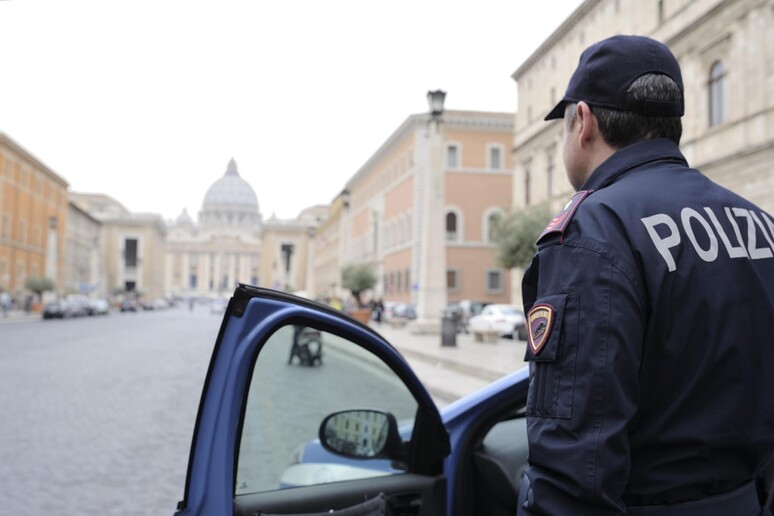Cardinal Angelo Bagnasco, the
head of the Italian bishops' conference (CEI), on Tuesday said
it would be an error to cancel the Catholic Church's upcoming
Holy Year devoted to mercy in the wake of Friday's terrorist
attacks in Paris.
"Cancelling the Jubilee would be totally mistaken, it
would be a big disappointment for the people of God and for all
of us," said Bagnasco, refering to the extraordinary Holy Year
called by Pope Francis which will start next month.
"This is a great grace that we must live to the full.
"I don't sense fears for the Jubilee either among my
brothers or in the Christian communities," he said on the
fringes of the inauguration of the new academic year at the
Pontifical Lateran University.
"Vigilance is higher, more watchful and dutiful," he
added.
"There absolutely must not be panic among the people who
must regard Rome, the pilgrimage to the Holy Door, with the
usual serenity and the wish to pray on the tomb of St. Peter".
An Ixè survey for Raitre television released Tuesday,
however, said that around 46% of Italians fear terrorist attacks
during the Jubilee.
The percentage is an increase of eight points on last
Friday before the Paris massacre.
Interior Minister Angelino Alfano said Tuesday that the
Italian authorities were continuing a large-scale campaign to
prevent terrorism, while warning that it was not possible to
eliminate the threat of attacks completely.
"Prevention is a grey job that you don't see, but it is
based on important figures," Alfano told State broadcaster RAI.
"It's necessary to lower the risk coefficient, not reduce
it to zero, because zero risk does not exist".
The minister said 24,000 uniformed police and army
soldiers are being deployed to protect Rome and its province
against terrorism as the Jubilee approaches.
"We decided to use 1,000 men from the armed forces, 700 are
already arriving, and another 300 will arrive," he said.
"In addition the prefect has 1,226 soldiers from the
Secure Streets operation at his disposal".
Indeed, Rome commuters were greeted by the sight of
soldiers guarding the subway stations on Tuesday.
Public transport company ATAC confirmed the measure was
taken in the wake of Friday's terrorist attacks in Paris.
The military and law enforcement officers are also
deployed at the Vatican, train stations, airports, places of
worship, and places where the public is likely to gather,
including night spots.
Health Minister Beatrice Lorenzin, meanwhile, said
emergency plans in case of a terrorist attack on Italian soil
are being put in place in agreement with the interior ministry.
"We have bolstered emergency health services and staff in
view of the Jubilee," she said, adding further protocols are in
place in case of terrorist attacks.
"We hope we will never have to use them," she said, adding
the ministry is assessing possible surprise stress tests to make
sure the system is working.
She added the ministry already has a Crisis Unit in place
in case of terrorist attacks with biological weapons.
After the Vatican on Monday said that Pope Francis's
agenda will not be changed by the Paris attacks, on Tuesday
Rome's Jewish community said that the pontiff will visit the
city's Synagogue on the afternoon of Sunday January 17.
Francis will be the third pope, after John Paul II and
Benedict XVI, to visit the synagogue.
It will be a "meeting charged with symbolic meanings, also
in light of the dramatic events of these months and the
commitment which religions and religious leaders are called to
assume in the struggle against darkness" said Pagine Ebraiche
(Jewish Papers), the magazine of the Italian Jewish communities.
ALL RIGHTS RESERVED © Copyright ANSA











